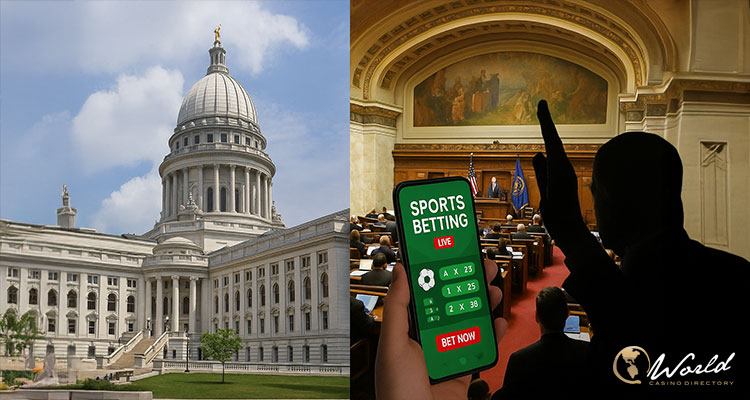Republican leaders in Wisconsin abruptly halted progress on Assembly Bill 601, a proposal that would have legalized online sports betting through tribal partnerships, just hours before a planned vote. The decision signaled internal GOP hesitation and growing conservative scrutiny, bringing the bill’s momentum to an unexpected pause despite earlier bipartisan support.
The legislation sought to redefine the term “bet” to allow wagers placed on mobile devices, provided the servers processing those wagers were located on tribal land. This approach mirrored existing compact structures that allow tribes to operate casino gaming and in-person sports wagering despite the state’s broader ban on gambling. AB 601 advanced swiftly, clearing the Assembly’s state affairs committee with a unanimous 10–0 vote, and was subsequently scheduled for a floor vote. But discussions among Republicans over the weekend shifted the outlook.
Internal Disagreements and Legal Doubts Slow the Bill
Assembly Majority Leader Tyler August confirmed shortly before Wednesday’s session that the bill had been taken off the calendar. He emphasized that the decision came after members raised issues he had “not considered yet,” adding, “There’s really no rush on this… we’re gonna work through those, and I expect we’ll be voting on it early next year.” While declining to specify the concerns, August noted the Senate was not returning that week, suggesting lawmakers had more time to evaluate the details.
Legal questions added further pressure. The Wisconsin Institute for Law & Liberty issued a memo arguing that online wagering could only be legalized through a constitutional amendment. WILL Deputy Counsel Lucas Vebber stated that Wisconsin voters had approved limits on gambling in 1993 and insisted, “Sports betting is growing in popularity, and if the people of Wisconsin want to change our policy in our state, they absolutely should… But the way to do that is through a constitutional amendment, not by a wink-and-a-nod look the other way with this legislation.”
Vebber also raised concerns that a model limited exclusively to tribal casinos could invite litigation, asserting that restriction could be “susceptible to a [legal] challenge.”
Supporters Cite Tribal Rights, Regulatory Control, and Market Realities
Democratic leaders voiced support for the bill, provided it preserved tribal oversight. According to CBS58, Assembly Minority Leader Greta Neubauer reaffirmed her backing, saying, “We know that our tribes in Wisconsin have the right to control gaming in our state, and right now, that’s not happening with online sports betting, so I hope we do pass a bill that puts control of that industry back in their hands.” Governor Tony Evers has similarly indicated he would approve legislation that keeps authority within tribal compacts.
The proposal positioned tribes at the center of online sports wagering by allowing compact renegotiations under the Indian Gaming Regulatory Act (IGRA). That framework is similar to the model used in Florida, where the Seminole Tribe secured online sports betting through a hub-and-spoke system. Under AB 601, tribes would be required to receive at least 60% of revenues from sports betting operators partnering with them. The bill’s Senate counterpart, SB 592, follows the same structure.
However, industry groups expressed reservations. At a public hearing, the Sports Betting Alliance warned that such revenue-sharing requirements might deter major operators—such as DraftKings, FanDuel, BetMGM, bet365, and Fanatics—from entering the state. They argued the economic environment could become unviable for companies asked to surrender a majority of earnings to tribal partners.
The broader context includes the rise of prediction markets such as Kalshi and Polymarket, which operate under federal oversight and offer users the ability to wager on events much like a sportsbook. August highlighted these platforms in recent communications with lawmakers, writing that “If we leave a gray area in state law, national prediction platforms will fill it without our compact framework, Wisconsin oversight, or Wisconsin consumer safeguards.” He argued AB 601 would instead redirect activity into a regulated tribal environment.
Despite the temporary halt, August maintained that the bill had the votes to pass in the Assembly. He reaffirmed that the legislation could return when the Legislature reconvenes early next year, stating, “It’s the right thing for the state, and I’m confident we’ll get there.”



